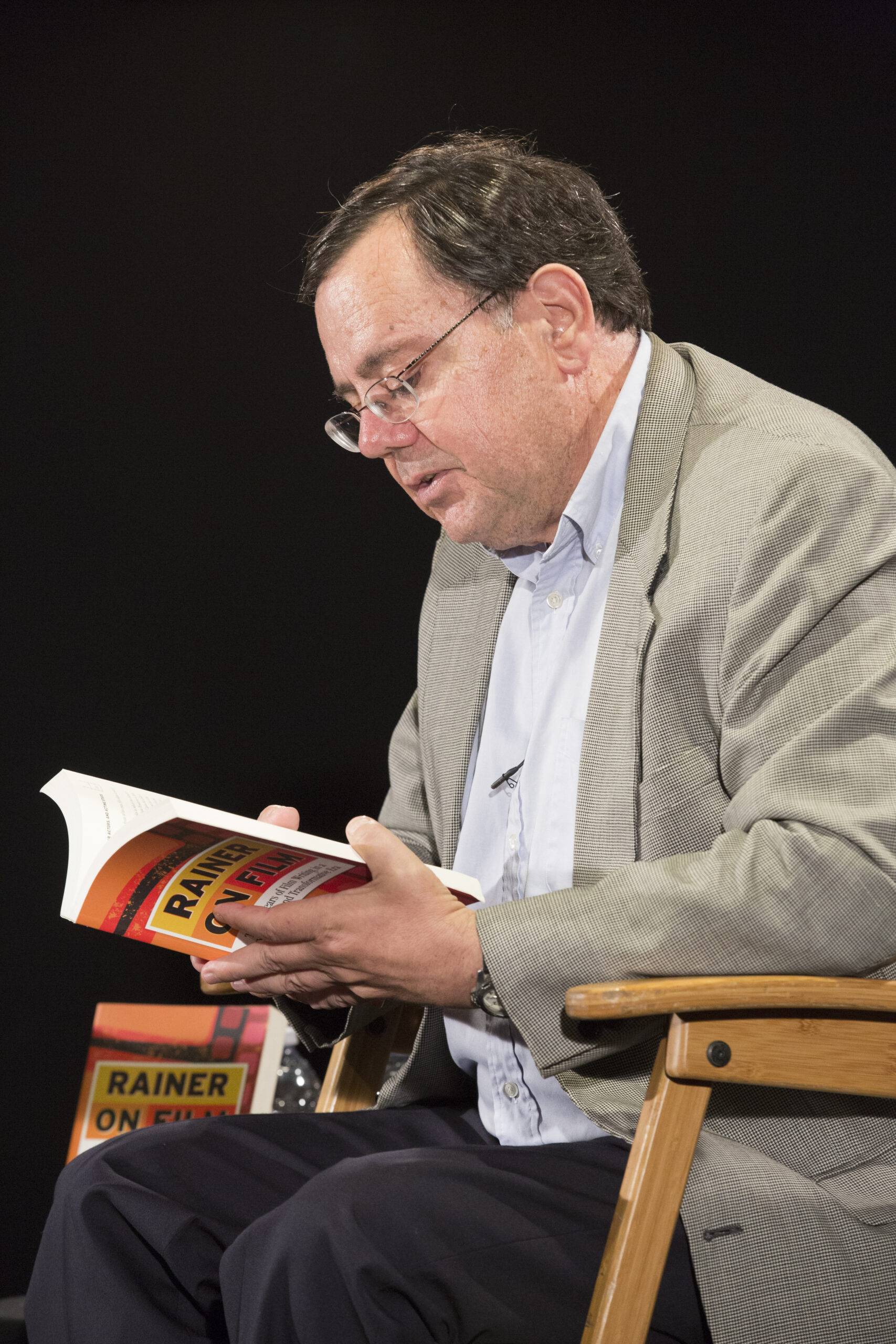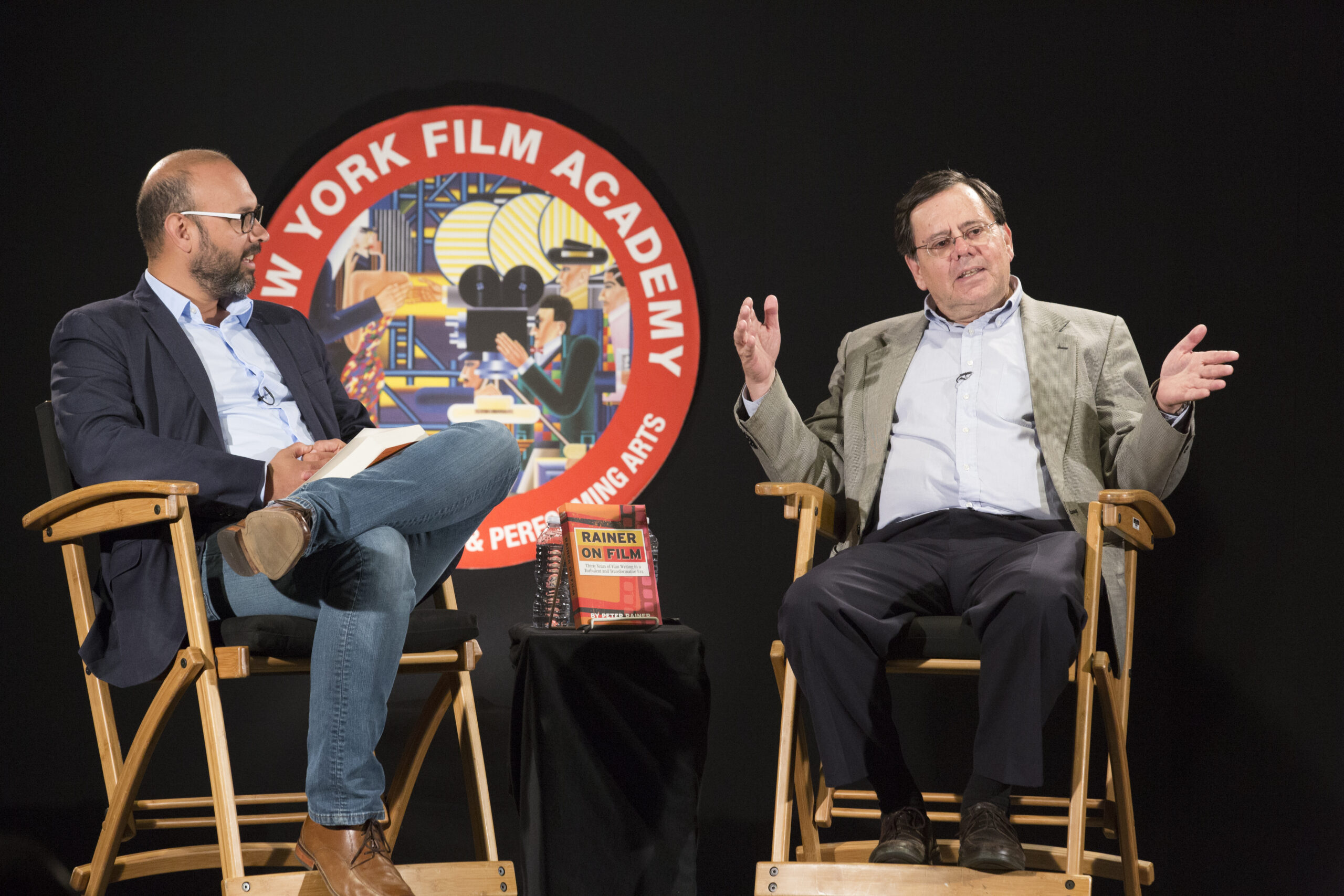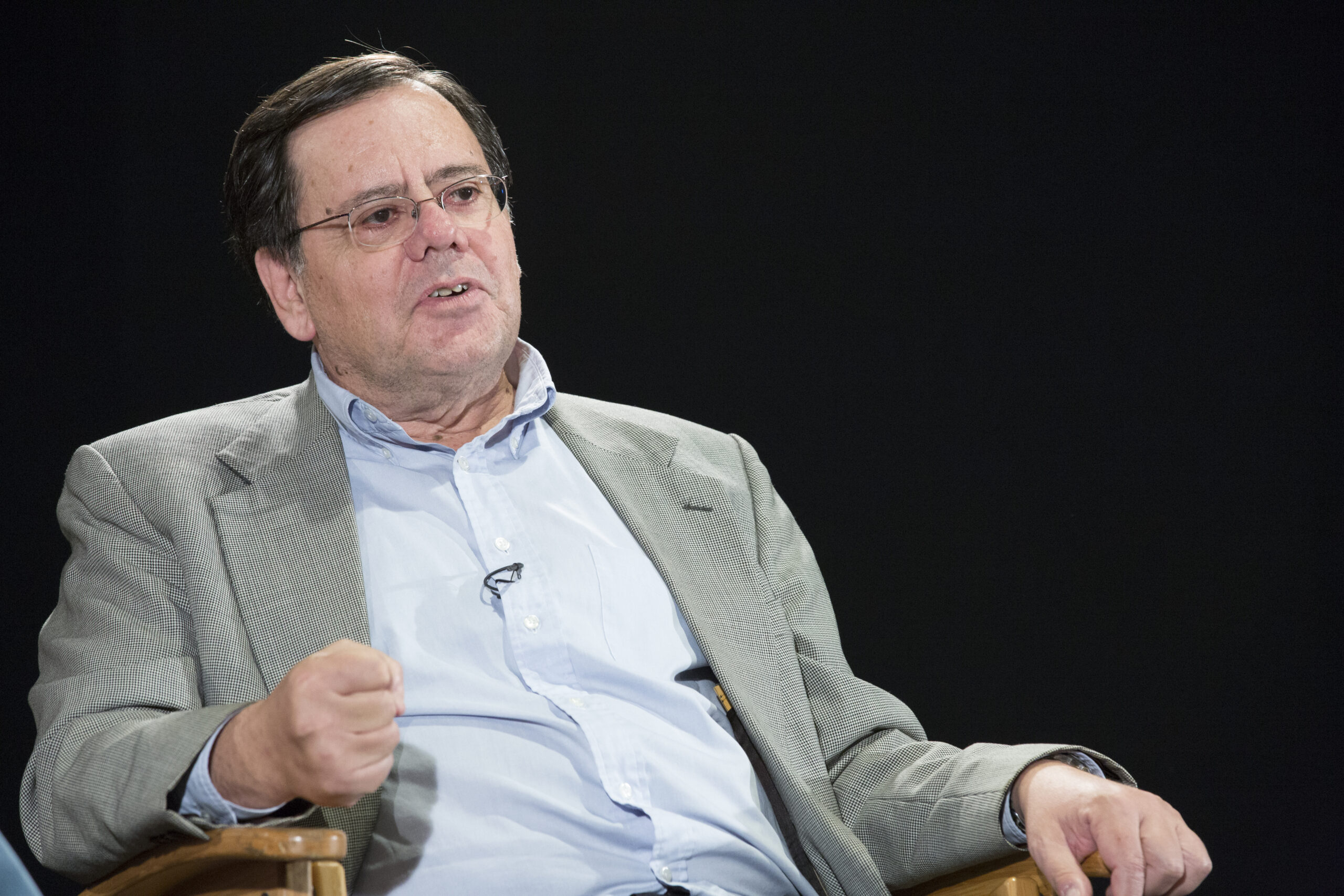 This past week, Pulitzer Prize nominee Peter Rainer stopped by New York Film Academy – Los Angeles to discuss what makes a good critic, what he sees as the next wave of filmmaking, and, of course, his years and development as a cinematic journalist. Dean of the College, Sonny Calderon, hosted the event.
This past week, Pulitzer Prize nominee Peter Rainer stopped by New York Film Academy – Los Angeles to discuss what makes a good critic, what he sees as the next wave of filmmaking, and, of course, his years and development as a cinematic journalist. Dean of the College, Sonny Calderon, hosted the event.
Rainer began his career as a film critic for his college newspaper. In fact, he eventually became the managing editor of the paper, so he could give himself more space for his film reviews. “I really had this jones to be a critic ever since my dad gave me this book called Agee on Film: Criticism and Comment on the Movies. I learned you could be a real writer and still be a critic.”
He continued, “When I graduated, I went to the library and wrote out a list of 50 publications that I could work for. Not knowing anybody. And I just sent my best work. I think I got two responses. One was from William F. Buckley. John Ford had died around that time so they asked me to do a piece on Ford. That was my first published piece as a writer. “
Rainer’s first permanent job was with Mademoiselle Magazine. Rainer said of his time there, “The first film I ever reviewed professionally was Chinatown. And I also did an interview with Robert Towne. He let it slip for the first time anywhere that he did an uncredited rewrite of Bonnie and Clyde.” This scoop became a huge Hollywood controversy and put Rainer on the map as a serious journalist.

From there, Rainer moved onto the L.A. Times. I had six years at the times. It was an interesting time. I think then the publishing industry had a very cozy relationship with Hollywood.”
Rainer went on to describe the difficulties critics have faced balancing thoughtful journalism with the demands of their publications’ advertising departments. When the studios keep your paper afloat it’s best not to upset them. “I thought being a critic was this refined thing. It’s connected to the dynamo of journalism, which means you’re connected to advertising. Critics were considered to be antagonistic to the advertisers.”
Speaking on the state of the pictures today Rainer said, ”I’m always amazed that films that are remade are always the ones that worked the first time. What you should do is remake a film that had a great idea but failed. I see 300 movies a year. I’d say 280 of them are – ugh. I wish I had more time to watch TV. A lot of what’s going on in television, right now, is more exciting than the movies. When I started in the mid 70’s maybe five or eight movies were released a week. Now…it’s more like 25. I never walk out of a film I’m going to review. I still have this ridiculous notion that at some point the film is going to get good or there’ll be some breakthrough performance…”

To end the evening Rainer read his eulogy to the person he considers the greatest actor of all time, Marlon Brando. A sincere hush fell over the students as they listened to the ups and downs of Brando’s career and how, through it all, he remained the best at his craft.
The New York Film Academy would like to thank Peter Rainer for his time and insight. Calderon highly suggests reading Rainer’s book, Rainer on Film: Thirty Years of Film Writing in Turbulent and Transformative Era. This is a great book for film lovers and creators and gives a broad history of one of the medium’s best critics. You can catch reviews from Rainer at the Christian Science Monitor and on NPR’s FilmWeek.